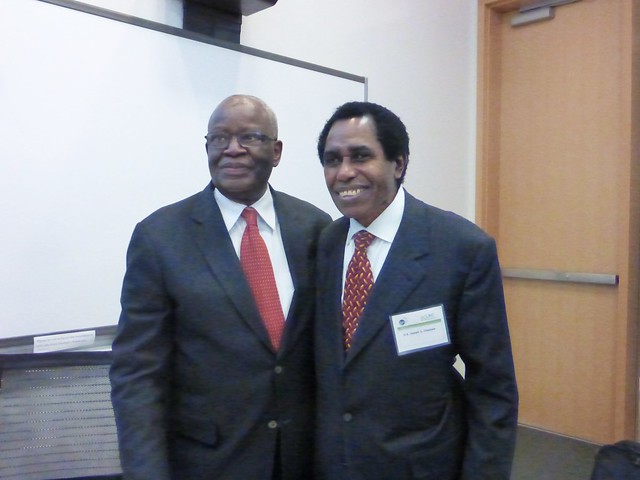New York, United States—The Academic Council on the United Nations System (ACUNS) held its annual meeting with the theme “Meeting the Challenges of Development and Dignity.”
The meeting, which was hosted by Fordham University, took place at the Fordham University School of Law, located in Manhattan, from June 16 to 18, 2016.
Since its creation in 1988, ACUNS has been at the forefront of efforts to showcase cutting-edge scholarly work on the UN System, multilateralism and international organization and to connect that scholarly conversation with UN practitioners.
UPF previously has sponsored meetings in Geneva and New York with ACUNS, and during this annual conference organized a side event on the theme “Dignity and Human Development: The Role of Religion, Faith-Based Organizations and Interfaith Dialogue.”
The opening plenary of the conference, on the theme “The 2016 UN Secretary-General Election: A Watershed?” was led by H.E. Mr. Matthew Rycroft, UN ambassador of the United Kingdom to the United Nations, in a discussion on the new paradigm of choosing a UN secretary-general through an unprecedented process of transparency and participation from member states, civil society and various agencies.
Keynote speaker H.E. Jan Eliasson, deputy secretary-general of the United Nations, spoke on “The United Nations in Today’s and Tomorrow’s Global Landscape.” He expressed optimism concerning the 2030 Agenda on Sustainable Development as an expression of transformative change which reduces the gap between the world as it is and the world as it should be. Despite the new global landscape of a world in turmoil with a high degree of uncertainty, organized crime and violence, and negative narratives on new issues, he perceived positive factors that were historically significant at the United Nations in the areas of women’s empowerment, leadership of youth, the potential of technology in solving the world’s problems, and the progress in the role of prevention regarding issues on peace and security.
Simultaneous panels and workshops continued throughout the program on stimulating topics such as “The UN Secretary-General and UN Reform,” “Political Dynamics at the UN: the Dilemma of Transnationalism,” “Dag Hammarskjold and the Ethics of International Civil Service,” “The SDGs: Now for the Hard Part – Implementation and Monitoring,” and “The UN Security Council: In Action or Inaction?” and “Critical Factors for Sustainable Peace and Development.”
The recipient of the UPF Leadership and Good Governance Award, H.E. Mr. Ibrahim Gambari, delivered a Keynote Address in a session entitled “Security and Justice at a Crossroads: The Future of Global Governance.” H.E. Gambari is the co-chair of the Commission on Global Security, Justice and Governance and the former ambassador of Nigeria to the United Nations. He also co-chaired a session on “UN Security Council Reform: Bottlenecks, Blunders and (Potential) Breakthroughs.”
The UPF Session addressed the topic of dignity and human development with special emphasis on the role of religion, interfaith dialogue and faith-based organizations. Panelists of the session were: Dr. Thomas G. Walsh, UPF president; Ambassador Izaiah Chabala, former ambassador of Zambia to the United Nations; Mr. Michael Shewchuk, president of the Center of Human Evolutionary Change; and Genie Kagawa, chair of the NGO Committee on Spirituality, Values and Global Concerns-New York. Given the growing recognition of religion's importance in global affairs, and noting that the United Nations has been increasingly appreciative of the significance of religious leaders, interfaith cooperation, and socially engaged religious institutions, this session explored the relevance of religion to the achievement of the 2030 Agenda for Sustainable Development, as well as other UN objectives.

